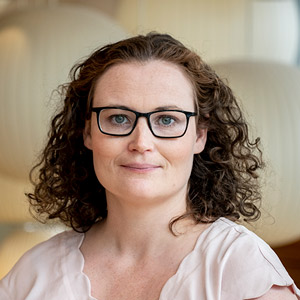Biography
Biography
Dr Muriel Desbois obtained her bachelor’s degree and master’s degree in Genetics by the University of Paris-Diderot- Paris VII, she also obtained her European Magistère of Genetics diploma alongside her master’s degree.
She then joined the laboratory of Dr Hannes Bülow at Albert Einstein College of Medicine in New York City for her PhD. She executed her PhD under the direction of both Dr Bülow and Dr Bernard Brugg at the “Institut de Biologie Paris Seine”. During her PhD she developed an enzyme-based, trans-synaptic and dynamic labelling method, called iBLINC, that allows high-resolution analyses of C. elegans synaptic connectivity.
In 2015, she joined the laboratory of Dr Brock Grill at the Scripps Research Institute in Florida as a postdoctoral fellow. The Grill lab then moved to Seattle Children’s Research Institute in 2020 where Dr Desbois continued her postdoctoral research. During her time in the Grill lab, she studied the biochemical basis of the complex formed by the atypical E3 ubiquitin ligase MYCBP2, a protein important for axon and synapse formation. In another study, using a proteomic approach in C. elegans, she identified a new substrate of this E3 ubiquitin ligase, the atypical kinase Cdk5, which was validated using biochemistry and genetic approaches. She showed for the first time that Cdk5 is important for axon termination and identified the first in vivo E3 ubiquitin ligase that inhibits Cdk5. She also collaborated with international clinicians to study mutations in MYCBP2, which were discovered in patients presenting corpus callosum defects. This study describes a new disorder named MYCBP2-related developmental delay with corpus callosum defects (MDCD).
In November 2023 she joined the School of Life Science at Keele University as a Lecturer in Molecular Neuroscience.
School of Life Sciences,
Huxley Building,
Keele University,
Staffordshire,
ST5 5BG
Tel: +44 (0) 1782 734414
Enquiries:
Tel: +44 (0) 1782 734414
Email: lifesciences.office@keele.ac.uk


